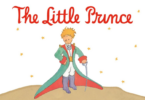3 Things to Take Note of After Reading a Book
Reading a book is more than just flipping pages; it’s an immersive journey of learning, discovery, and sometimes even self-transformation. But what happens after you finish the last page? To truly maximize the impact of a book, it’s essential to take certain steps that can help you retain what you’ve read, apply its lessons, and enrich your overall experience. Here are three key things to take note of after reading a book to ensure that it stays with you long after you’ve put it down.
1. Understand the Key Takeaways
Every book, whether fiction or nonfiction, contains messages, themes, or lessons that are worth reflecting on. Taking the time to extract and understand these key takeaways will help solidify what you’ve gained from the reading experience.
- For Fiction: Fictional stories often convey universal themes like love, courage, friendship, or personal growth. Reflect on how these themes were expressed through the characters, plot, or setting. Ask yourself: What did I learn from the characters’ journeys? Did the story offer any insights into human nature or societal issues?
- For Nonfiction: Nonfiction books are typically packed with valuable information, ideas, or strategies. Make a list of the most important concepts or practical advice presented in the book. For instance, if you read a productivity book, note down specific techniques or habits that you can incorporate into your life.
Writing a brief summary or creating a list of key points can help reinforce the knowledge you’ve gained and make it easier to revisit in the future.
2. Evaluate Your Emotional and Intellectual Responses
Books have the power to evoke emotions and provoke thought. After finishing a book, take a moment to evaluate how it impacted you both emotionally and intellectually.
- Emotional Impact: Consider how the book made you feel. Did it make you laugh, cry, or feel inspired? Why did it evoke those feelings? Fiction often resonates on an emotional level by immersing readers in the lives of its characters, while nonfiction can motivate or challenge your perspectives.
- Intellectual Impact: Think about the ideas, questions, or concepts the book presented. Did it challenge your beliefs or introduce you to new perspectives? Were there any arguments or themes that you disagreed with? Analyzing these aspects can deepen your understanding and encourage critical thinking.
By reflecting on your emotional and intellectual responses, you’ll develop a more meaningful connection to the book and gain insights into what types of literature resonate most with you.
3. Decide on Your Next Steps
A great book often leaves you with a sense of inspiration or curiosity. Once you’ve finished reading, consider how you can take action based on what you’ve learned or further explore the themes or topics that intrigued you.
- Apply What You Learned: If the book provided practical advice or actionable strategies, take steps to implement them in your life. For example, a self-help book might inspire you to adopt a new habit, while a business book might encourage you to refine your work strategies. Start small, and gradually incorporate these ideas into your daily routine.
- Explore Related Topics: Some books spark a desire to learn more about a particular subject. If you just read a novel set in a specific historical period, you might delve deeper into that era through additional books, documentaries, or articles. Similarly, if a book introduced a new idea, seek out other works that explore it further.
- Share and Discuss: One of the most rewarding ways to engage with a book is to share your thoughts with others. Join a book club, participate in online discussions, or simply recommend the book to a friend. Talking about what you’ve read can offer fresh perspectives and deepen your understanding.
Conclusion
Finishing a book doesn’t mean the journey ends; in many ways, it’s just the beginning. By taking the time to reflect on key takeaways, evaluate your responses, and decide on your next steps, you can transform a reading experience into lasting personal growth. Books have the power to teach, inspire, and challenge us, but their true value lies in how we integrate their lessons into our lives.
The next time you finish a book, don’t let its impact fade away. Instead, take note of these three steps and carry its wisdom forward. In doing so, you’ll not only enhance your reading experience but also enrich your life.







